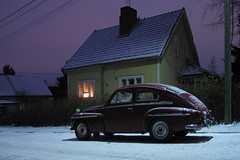
As a musician, I love playing both carefully composed works and my improvisations; I love playing squirreled away within my own apartment or out in the wide world.
In central park there are three large lawns
: the Sheep Meadow where, years ago, sheep actually kept the grass short; the Great Lawn where Simon and Garfunkle, the N.Y. Philharmonic and many other famous groups perform; and the North Field at whose edge I sat and played recorder this Sunday morning, watching the first stray players trickle onto the baseball fields.
I moved to the handball courts when my hill was taken over by a cacophony of dog owners, the courts just a few strides away. Stepping on the courts, I remembered practicing tennis here on another morning last year with two young raccoons shyly peering out of the near garbage can as my audience.
At the court, I played again but stopped when I thought I heard church bells. It took me a moment to realize what was happening. In the middle court there is a high chain link fence dividing two lines of courts and when I played my recorder there, the fence resonated. The actual sound was like the fuzzy after-peal of church bells sans the percussive knock or a loud glass harmonica.
If I have to attend a Sunday morning worship service, this is how I like it: Bach's music and improvised tunes, soft pealing sounds in the background, gorgeous woodsy setting, no preaching, no husband or kids dragged there when they'd rather be still under the covers or getting ready for the beach.
I have to report that 100% of the congregants
(me, the only one) were thrilled to be attending.
I mentioned "Bach's music and improvised tunes." Of interesting musical note, I read a book on Bach's
Art of the Fugue yesterday. It mentioned that while Bach improvised freely, when he then took those improvisations to paper, he would then adjust them to musically flawless, technically correct works.
This goes along with my thinking that music writing is a two part process, the first part being a freely created tune, often inspired by half remembered melodies now with new twists; infused the remembered rhythmic feel of a dance, a heartbeat; animated by birdsong
(which that morning I heard and played with); laughter, which I personally believe (though I never heard anyone else say this), was the persistent basis of Mozart's melodies; or in one case
(Harold Arlen, "Over the Rainbow"), kindled by the whistling for his dog.
The second part being the sometimes wonderful developments, patterns and clever teasings reworked into the piece.
In a review last week in the NY Times, Bernard Holland explained...
Countries with powerful popular cultures don’t produce many fugues. Abstraction and formal design have a hard time competing with musical impulses that seem to grow out of the ground, especially when the country is Spain and the melding of European and North African music remains so strong.
Folk cultures and popular music genres have no time for fugues, their musicians are busy playing melodies. Makes sense.
Bach, spent more of his energy on development, borrowing
(stealing away for us?) tunes he found, including one song from Martin Luther
(for which arrangement, two days ago, my son just finished studying the four recorder parts, SATB). "Serious" composers develop songs they find. Aaron Copeland's famously took the Shaker's
It's a Joy to Be Simple and did hardly anything to it.
Of course, composers do love to make
their own tunes. When improvising, I find myself focusing on a melody and its variations, while at the same time focusing on its development, progression and its interweaving with other melodies. It's like having two parts of your brain converse with each other, each speaking at the same time and it's
you in each case being the speaker and listener.
When I do this, I see that multitasking the brain is deliciously addicting and must reluctantly admit I can't criticize my son for playing two demanding video games
(and typing away like a demon to talk to other online gameplayers) at once, while watching a movie on the screen and listening to music, and researching stuff on the internet in between. I'd like to criticize but I can't.
But no matter how complicated the composition gets, its the tune, that short story of what happens to notes and harmonies, that matters.
People want to hear pretty, unforced melodies which feel like they grew out of the ground, whether played by popular musicians or reworked in classical style; whether they were created centuries ago like
Greensleeves or improvised on the spot; in a concert hall or in a chance encounter in a park.
A pretty tune is like an cute girl. You want to spend time with her.
















